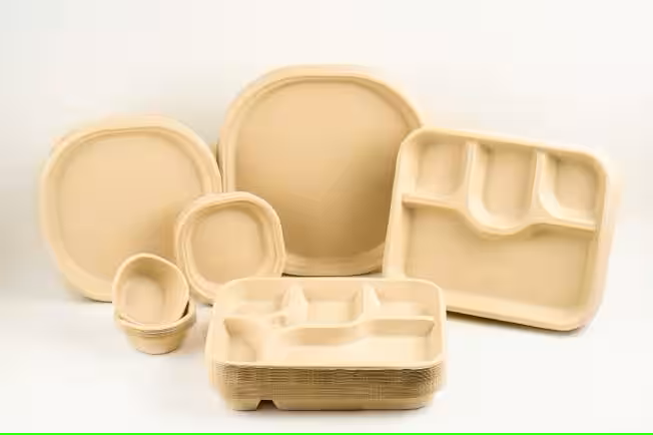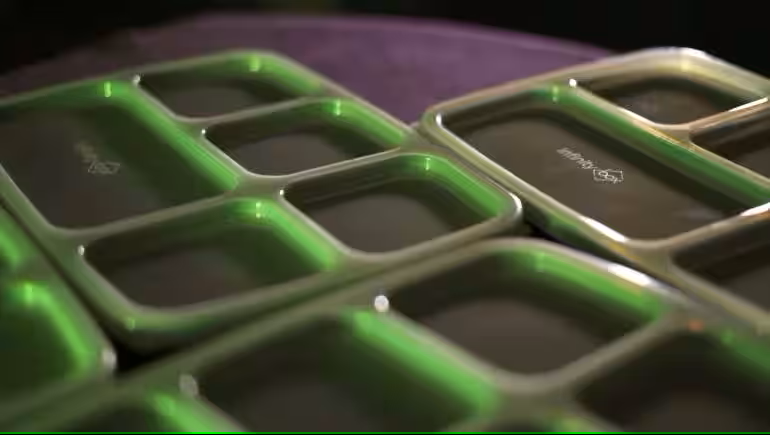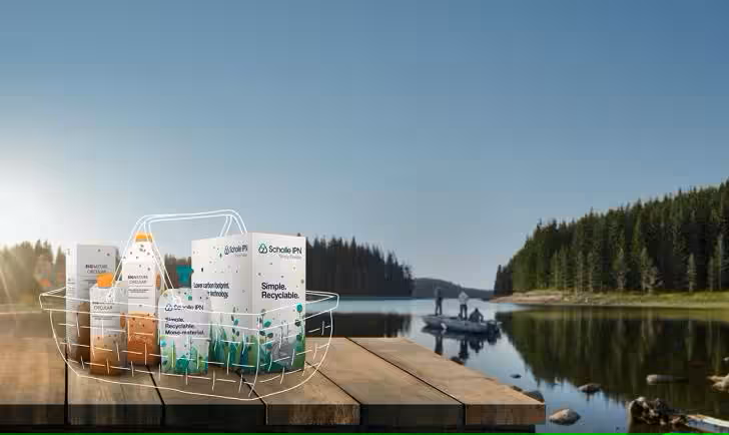No products in the basket.
Packaging goes green: Say no to single-use plastic and yes to sustainable packaging solutions
Posted onJuly 3, International Plastic Bag Free Day, is a good time to shine the spotlight on alternative packaging solutions that are ecologically sensitive.
What do materials like bagasse (sugarcane residue), bamboo, and seaweed have in common? If the question foxed you, well, these are some of the varied kinds of materials that are being used in sustainable packaging.
Plastic woes
One of the major concerns regarding plastic packaging is their non-biodegradable nature, which poses a multitude of harmful effects on the environment. Therefore, alternative packaging solutions that are more environmentally friendly and designed to preserve the quality and freshness of products over an extended period are taking centre stage. Vandana Tandan, head of markets, India and Bangladesh, SIG Combibloc India Pvt. Ltd, says, “the key element offered by our packaging solutions is renewable paperboard, sourced from responsibly managed forests. We are also working towards increasing the share of renewable materials in our carton packs. This will help to reduce our reliance on fossil-based resources and support the transition to a more sustainable packaging solution. The straws and caps on our packs are completely recyclable. Furthermore, our lightweight carton packs are designed to minimise material usage, reduce wastage, and lower transportation emissions.”
Material matters

CHUK, a subsidiary of Yash Pakka, creates compostable solutions for the packaging industry which also includes the food sector, encompassing food packaging, food carry, and food service uses a 100 per cent sugarcane agri-residue called bagasse as raw material sourced from local sugar companies within a range of 200-250 km. “Our current product portfolio primarily consists of compostable base materials for packaging and compostable tableware suitable for both dine-in and delivery purposes. This raw material contains impurities like pith and lignin. Pith is removed by depithers. Lignin restricts fibre-binding; hence it is removed from the bagasse fibre in the pulp mill. The purified natural pulp is then moulded into tableware using automatic and semi-automatic thermoforming machines,” says Satish Chamyvelumani, business head, CHUK.
Varun Singh Bothiyal, senior director, Moglix adds, “our packaging solutions not only focus on plastic alternative products but also on the appropriate utilization of recycled materials to reduce overall carbon footprints, fully complying with the latest government regulations. We also prioritize sustainably sourced materials, such as FSC-certified paper, compostable made from agro-based materials, and bamboo and jute-based products, offering safe and sustainable alternatives to plastic packaging. We ensure the optimum selection of materials and processes to design solutions that support a circular economy and promote recyclability.” Bambrew manufactures and supplies packaging solutions made from recycled paper, Bamboo paper and other compostable and biodegradable material.
Bioplastic battle
Seaweed-based coatings are not only a viable alternative to the existing ones, they are also extremely high performing and cost effective. Zerocircle creates all their products from seaweed and is making a case for using naturally occurring polymers from seaweed as opposed to using bioplastics. “Bioplastics could be plant-based, but a lot of them are still made from petroleum-based resources, and the final product might still have synthetic components in them, making them difficult to recycle and compost. When it comes to
sustainability and environmental impact of the final product, ‘bioplastics’ remains a grey area. Naturally occurring polymers, on the other hand, are not only made from renewable sources like seaweed, but are designed to degrade and break down naturally without releasing any microplastics, toxic emissions and synthetic chemicals into the environment. These polymers are produced by living organisms through biological processes. They have a wide range of applications in various industries due to their unique biodegradability properties,” says Neha Jain, Founder and CEO, Zero Circle.
Product as a service

Understanding the packaging needs and associated pain points of a variety of institutions, InfinityBox has a model where they supply reusable containers as a service. This is a service that offers sustainable packaging options to clients like corporations, hospitals, universities, co-living spaces, co-working spaces, and food delivery platforms like Zomato and Swiggy. For example, disposable plastic containers used by Zomato and Swiggy are replaced by reusable options like Tupperware boxes. “The idea is to reuse this box so that we can reduce their carbon footprint. With corporates we find out their exact requirements and supply them the entire need for the day with reusable plates that are collected after use, washed, and reused. This reduces consumables, electricity, and water, and we clean them in two hours and send them back the next day. Zomato and Swiggy had a specific issue to reduce their single use plastics so we replaced it with reusable containers that we collect, wash and reuse. With Swiggy and Zomato, we have supplied over 1.5 lakh boxes that can be reused. The packaging is available in specific areas in Bengaluru and Mumbai and is planning to start in Delhi and Hyderabad,” says Shashwat Gangwal, Founder & CEO, InfinityBox. The impact of their work is tremendous as they have reduced 200,000 kg of disposable waste and with a new client are reducing 1 billion litres of fresh water through their solution.




 Tiếng Việt
Tiếng Việt